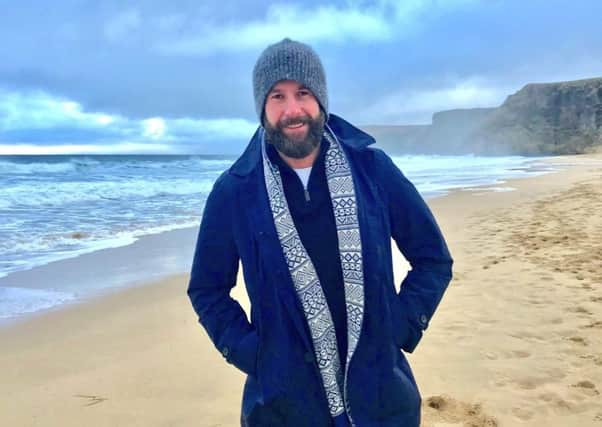Islander donates voice to help others who've lost their speech to illness


Coinneach MacLeòid, 43, took part in an innovative project named Speak Unique which aims to create personalised digital voices for stroke patients or those battling Motor Neuron Disease (MND).
The team have been actively recruiting volunteers across the country to become “voice donors” that can help them to gather together a wide range of the different Scottish accents.
Advertisement
Hide AdAdvertisement
Hide AdThey still require voices from males in Orkney, the Highlands, the Western Isles, the Grampian region as well as Dumfries and Galloway.
Female voices are also required from the Borders region.
The goal is to make communication aids for those who lose their voice through illness – but instead of a ‘robotic’ Stephen Hawking sound, they want to get as close to the patient’s own voice as possible.
Mr MacLeòid, who is originally from the Isle of Lewis, said: “It’s actually amazing what they’re doing. When a person is in that situation, it’s not just their voice they’re losing, it’s their identity as well.
“Especially in Scotland where our accents are very strong – and where we have so many regional accents.”
The ultimate ambition of the research project is for people to be able to use communication aids that speak for them in their own voice.
The project is a team effort, with clinical researchers from the Euan MacDonald Centre for Motor Neurone Disease Research working with speech scientists at the University of Edinburgh’s Centre for Speech Technology Research.
Mr MacLeòid heard about the project through a friend and spent the day with the team at the end of May.
He added: “You’re asked to come in and record 400 - 600 sentences. From that, you end up covering each sound in the English language. The phrases were from the Herald newspaper section, there was one weird one – the monkey has one hairy arm – that stuck with me, but you don’t have time to think because you’re going so fast.
Advertisement
Hide AdAdvertisement
Hide Ad“It’s inspiring. It will help get away from the classical Stephen Hawking situation with the computerised voice.”
Ideally, for someone living with motor neuron disease, a person’s voice is recorded before their speech has become affected.
However, if this has not happened then a voice donation like the one provided by Mr MacLeòid can be used.
The team’s voice bank can pull together donor voices with the same age, sex and regional accent as the patient which are then pooled together to form an “average voice model”, which acts as a base on which to build the synthetic voice.
The Hebridean put up a post on Twitter about his experience, with around 7,000 people showing their support.
Mr MacLeòid added: “I just posted it and never expected it to cause such a big reaction, it’s been wonderful in such a humbling way.
“A lady in Germany who has MND and has lost her voice contacted me to say her box is this very American impersonal accent and she loved the idea of the project.
“A mum also got in touch to tell me about her young boy who has lost his voice too – it’s just humbling to hear from them.”